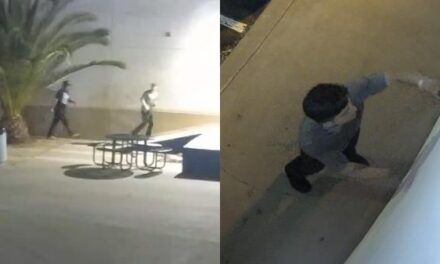SAN DIEGO–Two western harvest mice found in south Escondido and Rancho Bernardo have become the first to test positive for hantavirus in San Diego County in 2016.
San Diego County environmental health officials said people should remember to protect themselves whenever they find rodents living in their homes, sheds and garages by remembering not to sweep or vacuum and use “wet-cleaning” methods instead if they have to clean up.
The mice were collected in routine monitoring by the Department of Environmental Health’s Vector Control Program. Hantavirus can cause deadly infections in humans and there is no vaccine or cure. However, people have very little chance of being exposed to the virus if they keep wild rodents out of their homes and workplaces.
Hantavirus is mainly carried by wild mice. They shed the virus through their saliva, urine and feces. Because of that, if people sweep or vacuum up rodent droppings or nests, they can stir the dried virus up into the air, where they can breathe it in and get infected.
Officials said people should try to avoid exposure to wild rodents and, if necessary, use wet-cleaning methods if they have to clean an area where rodents have been.
Avoid Exposure to Hantavirus:
- Seal up all external holes in homes, garages and sheds larger than a dime to keep rodents from getting in.
- Eliminate rodent infestations immediately.
- Avoid rodent-infested areas and do not stir up dust or materials that may be contaminated with rodent droppings and urine.
- Clean up rodent droppings and urine using the wet cleaning method described below.
Use “Wet-cleaning” Methods to Prevent Inhaling the Virus:
- Do not sweep or vacuum infested areas.
- Ventilate affected area by opening doors and windows for at least 30 minutes.
- Use rubber gloves. Spray a 10 percent bleach solution or other disinfectants onto dead rodents, rodent droppings, nests, contaminated traps, and surrounding areas and let the disinfectant stand for at least 15 minutes before cleaning.
- Clean with a sponge or a mop.
- Place disinfected rodents and debris into two plastic bags, seal them and discard in the trash.
- Wash gloves in a bleach solution, then soap and water, and dispose of them using the same double-bag method.
- Thoroughly wash your hands with soap and water.
For more information, contact the County Department of Environmental Health (DEH) at (858) 694-2888, or visit the DEH hantavirus Web page.





